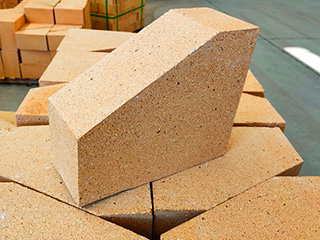Refractory fireclay bricks are an essential component in the construction of high-temperature kilns and ovens. These bricks are made from a mixture of clay and other materials that are highly resistant to high temperatures and can withstand the harsh conditions inside these heating systems.
The main purpose of refractory fireclay bricks is to line the interior of the kiln or oven and protect it from the high temperatures produced by the heating elements. Without these bricks, the kiln or oven would quickly degrade and become unusable.
Refractory fireclay bricks are manufactured using a special process that involves mixing clay with other materials and then firing the mixture at high temperatures to produce a strong and durable brick. The specific mixture used can vary depending on the intended application of the brick.
The composition of refractory fireclay bricks typically includes a mixture of alumina, silica, and other materials such as magnesia, zirconia, or chrome. The proportions of these materials can vary depending on the specific properties required for the brick.
Alumina is a key component of refractory fireclay bricks because it is highly resistant to high temperatures and can withstand thermal shock. Silica is another important ingredient because it has a low coefficient of expansion, which means that it can withstand sudden changes in temperature without cracking.
Magnesia is often added to the mixture to improve the resistance of the brick to chemical attack. Zirconia is sometimes used to increase the refractoriness of the brick, which means that it can withstand even higher temperatures.
Chrome is another material that is sometimes added to refractory fireclay bricks. It is highly resistant to corrosion and can improve the resistance of the brick to thermal shock.
There are several different types of refractory fireclay bricks available, each with its own unique properties and applications. One common type of fireclay brick is the high-alumina brick, which is made from a mixture of alumina and other materials.

High-alumina bricks are known for their excellent resistance to high temperatures and thermal shock. They are commonly used in the construction of blast furnaces, glass tanks, and other high-temperature applications.
Another type of fireclay brick is the silica brick, which is made from a mixture of silica and other materials. Silica bricks are known for their excellent resistance to chemical attack and are commonly used in the construction of acid-proof kilns and other chemical processing equipment.
Magnesia bricks are another common type of fireclay brick. They are made from a mixture of magnesia and other materials and are known for their excellent resistance to chemical attack and high temperatures. Magnesia bricks are commonly used in the construction of steelmaking furnaces and other high-temperature applications.
There are also a variety of other types of fireclay bricks available, each with their own unique properties and applications. The specific type of brick used will depend on the specific requirements of the application.
When selecting refractory fireclay bricks for a high-temperature kiln or oven, it is important to consider a variety of factors. One important factor is the maximum temperature that the brick will be exposed to.
Different types of fireclay bricks have different maximum temperature ratings, and it is important to select a brick that is rated for the specific temperature range required for the application. Using a brick that is not rated for the required temperature range can result in damage to the brick and premature failure of the kiln or oven.
Another important factor to consider is the chemical composition of the materials being processed in the kiln or oven. Different types of materials can have different corrosive properties, and it is important to select a fireclay brick that is resistant to the specific types of chemicals that will be present in the application.
In addition to selecting the appropriate type of fireclay brick, it is also important to ensure that the brick is installed correctly. The installation process involves placing the bricks in the appropriate pattern and using a special refractory mortar to bond the bricks together.
The installation process can be complex and should be performed by experienced professionals who are familiar with the specific requirements of the application. Improper installation can result in gaps between the bricks, which can allow heat to escape and cause premature failure of the kiln or oven.
Proper maintenance is also important for ensuring the longevity of refractory fireclay bricks. Regular inspections should be performed to check for signs of wear or damage, and any damaged bricks should be replaced promptly.
In addition, it is important to ensure that the kiln or oven is operated within the recommended temperature range and that any chemicals used in the process are handled properly to prevent damage to the fireclay bricks.
In conclusion, refractory fireclay bricks are an essential component in the construction of high-temperature kilns and ovens. These bricks are highly resistant to high temperatures and can withstand the harsh conditions inside these heating systems.
There are several different types of refractory fireclay bricks available, each with their own unique properties and applications. When selecting a fireclay brick for a specific application, it is important to consider factors such as the maximum temperature range and the chemical composition of the materials being processed.
Proper installation and maintenance are also important for ensuring the longevity of refractory fireclay bricks. With the appropriate selection, installation, and maintenance, refractory fireclay bricks can provide long-lasting protection for high-temperature kilns and ovens.
Contact: Mgr. Han
Phone: 0086-13589497465
Email: 1255953279@qq.com
Add: Industrial Area of Lingzi Town,Zichuan District,Zibo City, Shandong,China